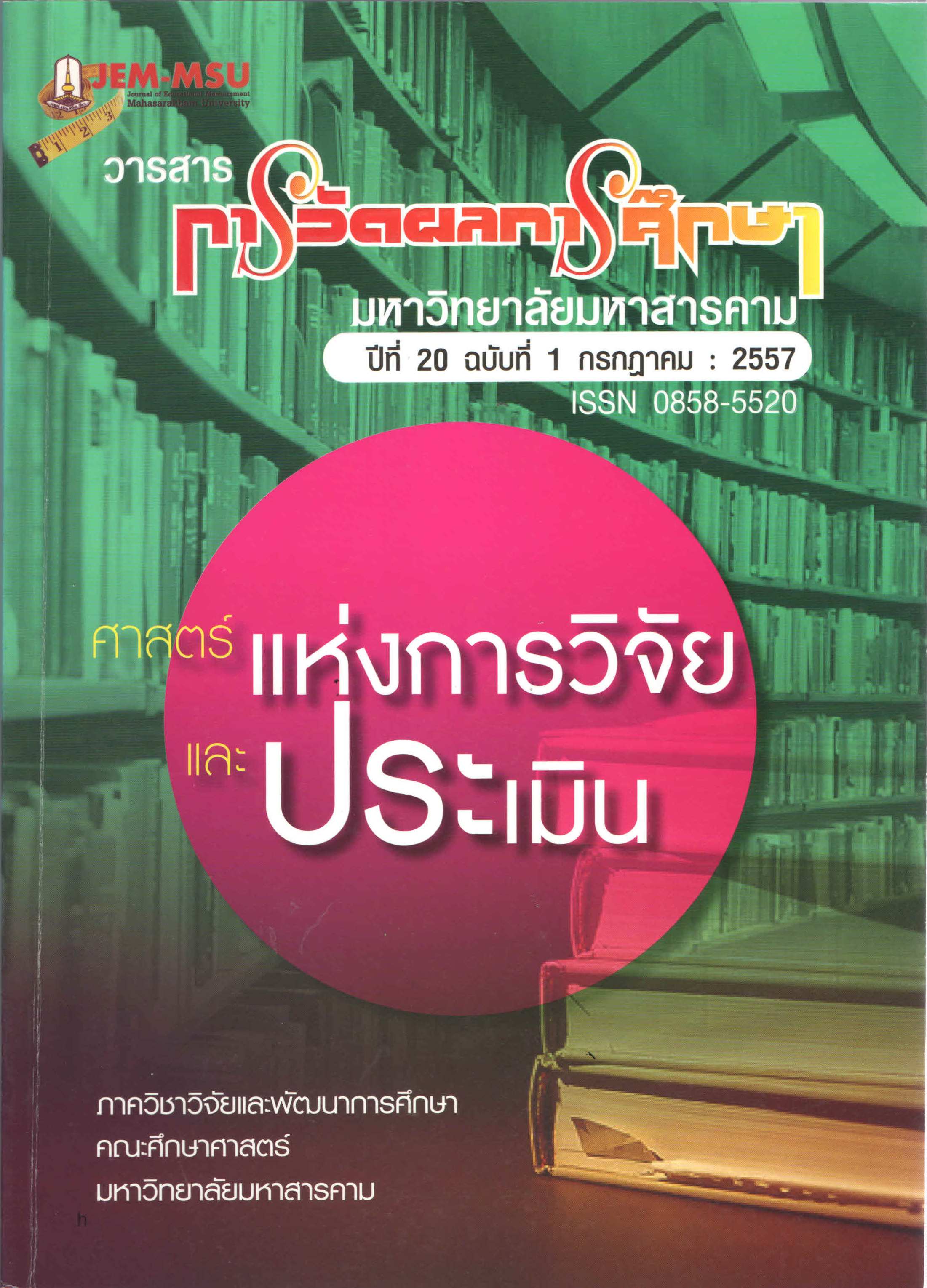Development of Linguistic Intelligence Assessment Tools Based on Multiple Intelligence Theory for Early Childhoods Student.
Main Article Content
Abstract
This research aimed to: 1) develop instruments for assessing linguistic
intelligence based on the theory of multiple intelligences for early childhood; 2)
examine the quality of instruments; and 3) develop norms of the instruments. The
sample was 200 second-level kindergarten students of schools in Chonburi
General Education Area 2 were derived from multi-stage sampling. Research
instruments comprised of four linguistic intelligence assessment forms based on
the theory of multiple intelligences for early childhood students. The first form
was response to meaning of words. The second form was response to ordering.
The third form was ability to use language for communication. The fourth form
was response to sensory stimulus. Data were analyzed by computer software.
It was found that the linguistic intelligence assessment forms for early
childhood students possessed Indexes of item - Objective Congruence (IOC) were
from .60 to 1.00, Concurrent Validity value was .768. Difficulty ranged from .33 to
.78 and Discrimination Power ranged from .30 to .97. Cronbach's alpha internal
consistency of the forms was .45 to .54. Inter - rater Reliability was .93. Construct
Validity using confirmatory factors had 2 value at 171.30 in with P-value were
1.00 with statistical significance at .01. GFI was .96. AGFI was .95. RMR was .033.
RMSEA was .000. Factor weight was .03 to .14. Local norms were from T22 to T72.
Article Details
The content and information contained in the published article in the Journal of Educational Measurement Mahasarakham University represent the opinions and responsibilities of the authors directly. The editorial board of the journal is not necessarily in agreement with or responsible for any of the content.
The articles, data, content, images, etc. that have been published in the Journal of Educational Measurement Mahasarakham University are copyrighted by the journal. If any individual or organization wishes to reproduce or perform any actions involving the entirety or any part of the content, they must obtain written permission from the Journal of Educational Measurement Mahasarakham University.


